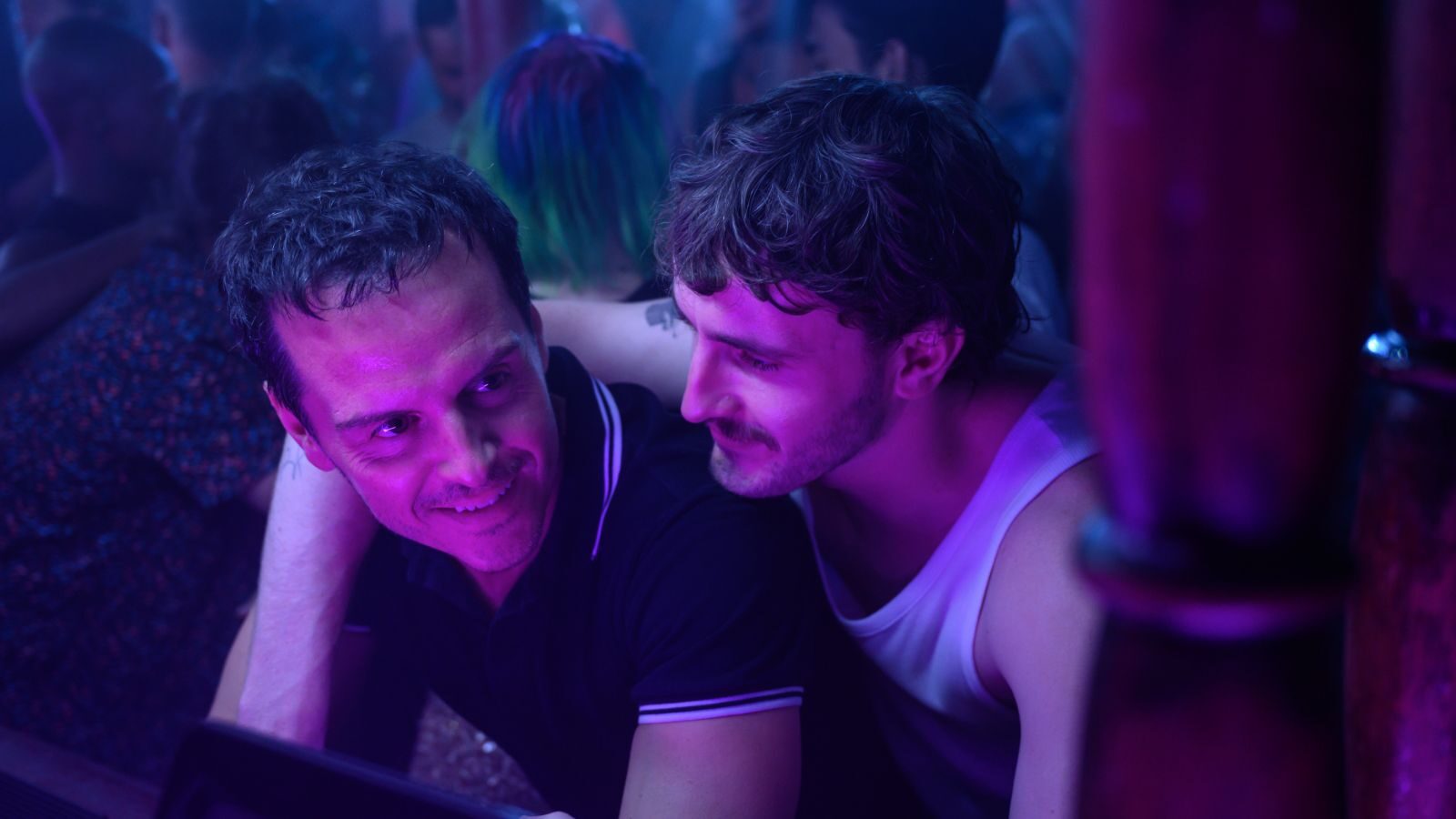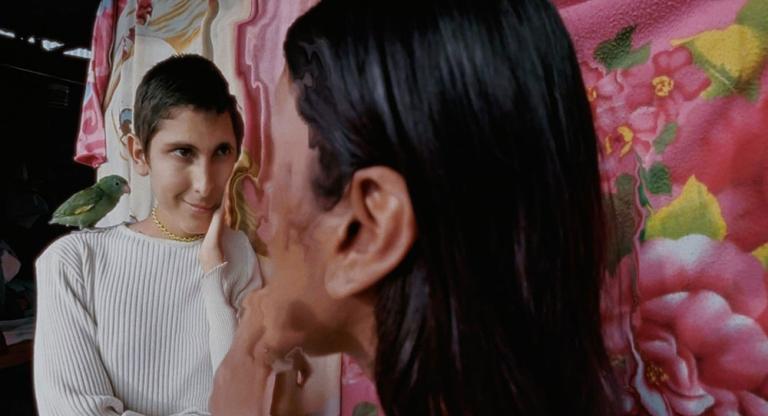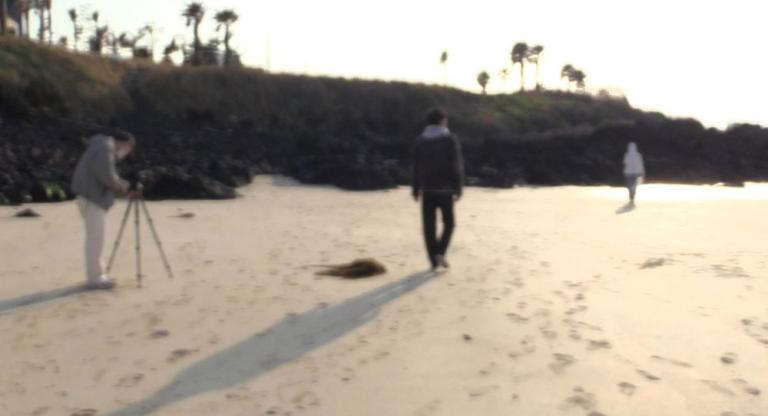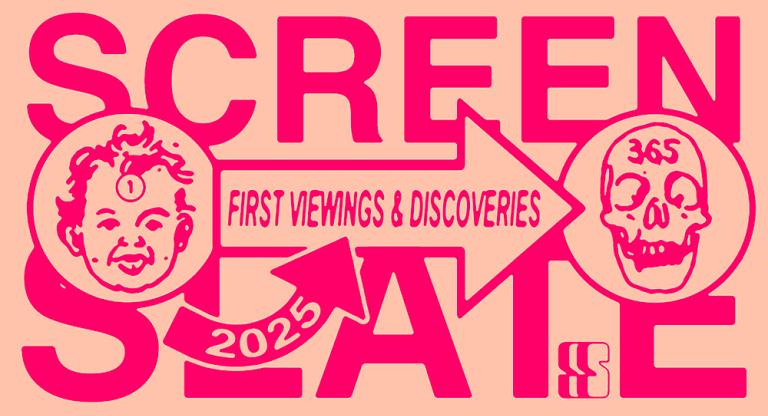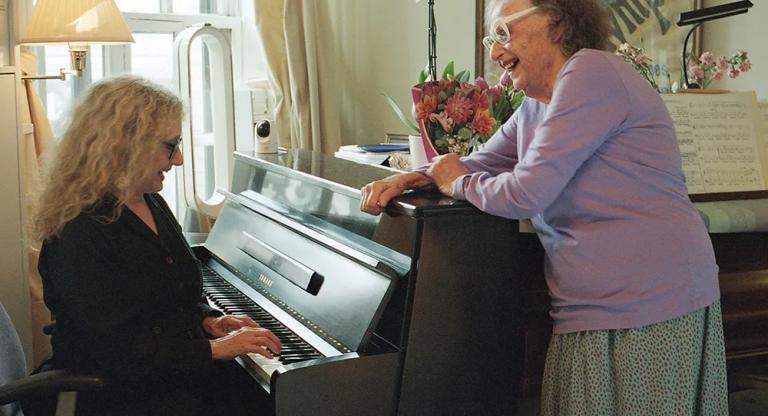Andrew Haigh’s latest, All of Us Strangers (2023), is a return to his early-career focus on gay romantic dramas (Weekend, 2011; HBO’s Looking, 2014–15), but trades in the naturalism of his previous work for metaphysical melodrama. Adapting Yamada Taichi’s 1987 novel, Strangers, Haigh queers the Japanese ghost story and moves it to London, creating a sad and sensual portrait of love and grief whose magical realism doesn’t always work to its advantage.
Andrew Scott, in a career-best performance, plays Adam, a gay, middle-aged writer struggling with his latest project, a script of some kind that we can piece together is at least somewhat autobiographical. He attempts to mute the deafening silence of his seemingly empty London apartment building with music and television shows from his youth, trying to tap into the creative well, but more often than not winds up snacking and passing out in front of the television. It is on one of these lonesome nights that a handsome neighbor (a sad-eyed and sexy Paul Mescal) knocks on Adam’s door with a bottle of whiskey, looking for company. As this unexpected encounter soon blossoms into a romance between the two lonely souls, Adam begins to revisit his past so he can move forward in his writing and in his new relationship.
Searching for inspiration, Adam takes a train back to his hometown to visit the house he grew up in, likely not expecting to find his parents (Claire Foy and Jamie Bell), who died in a car accident when he was twelve years old. And yet find them he does, in their home (actually Haigh’s childhood home), awaiting Adam’s arrival, eager to hear about what he’s been up to all these years. They're exactly as they left him: young, congenial, and products of their time; they are unaware of their son’s sexuality and about how social attitudes about queerness have changed since the Thatcher era.
As Adam’s relationship with Harry deepens, so does his desire to return over and over to this happily haunted house, where he gets to have the important discussions that his parents’ untimely deaths denied him. These talks exhibit both the film’s emotional strengths and weaknesses. Bell and Foy navigate a difficult assignment: they communicate history and soulfulness as a couple of specters, meant to reintroduce the protagonist to his inner child more so than achieve realism. The conversations between Adam and his parents, even when awkward, resolve themselves with kindness and mutual understanding that is unbelievably neat and borderline cliché. Perhaps that is because Adam needs them to be, in order to heal the psychic wound that has held him back from happiness, but it sidesteps the knottiness of actual relationships that has made Haigh’s body of work so compelling.
Despite the chemistry between Scott and Mescal (and there is a lot of it), the film never quite pierces their relationship. The two characters come together with trembling tenderness, the passionate yet cautious touches that mark a first night of intimacy. It’s so immediate and real, but unfortunately, the film doesn’t stay tethered enough to this key relationship as the surreal elements become more pronounced. Like his beloved sophomore feature, Weekend, All of Us Strangers brings two very different strangers together in an anonymous apartment building, but the latter never lets them pick each other apart. It’s a shame, too, since some of the more interesting threads regarding generational differences in queer experience could have been tugged on further.
When Adam comes out to his mother (or at least the mother he imagines he would have come out to), he defensively explains that being gay does not sentence one to a lonely life—or at least, it’s not the only reason his life is lonely. It’s a quietly devastating realization on Adam’s part, that his grief and his sexuality are perhaps inextricably intertwined after all. Scenes like these showcase Haigh at his most poignant, creating small moments that make a tremendous emotional impact. All of Us Strangers can be commended for coming close to squaring these subtle notches in a character’s journey with the grandiose, dream-like quality of its final act. But by sacrificing the restraint he typically wields so skillfully, Haigh keeps the film from being truly great.
All of Us Strangers screens tonight, October 1, and throughout the coming weeks at the New York Film Festival. Tonight’s and tomorrow’s screenings will be followed by a conversation with director Andrew Haigh and editor Jonathan Alberts.
